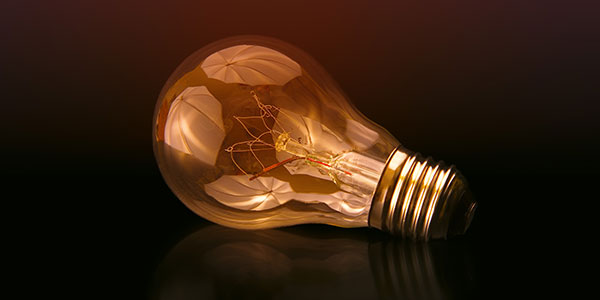An Easy-To-Follow Guide To Buy Fakes
본문

The Reality of Buying Fakes: Understanding the Risks and Implications
In today's consumer-driven society, the allure of counterfeit items is more powerful than ever. From designer purses to electronic devices, lots of individuals find themselves tempted by the seemingly attractive prices of these knockoff products. However, the implications of buying fakes extend beyond mere economics; they encompass legal, ethical, and social measurements that consumers frequently overlook. This article aims to supply an extensive understanding of the phenomenon of purchasing counterfeit goods, checking out the dangers related to it while attending to common concerns surrounding the subject.

What Are Counterfeit Products?
Counterfeit products are imitation products that are created to look like and deceive customers into believing they are acquiring authentic goods. They are normally produced without the consent of the initial brand name owner and typically offered at a portion of the price of real items. Counterfeiting can happen across different markets, consisting of style, electronics, cosmetics, and pharmaceuticals.
Kinds Of Counterfeit Products
Luxury Goods: High-end style products, devices, and appeal items prevail targets for counterfeiters. Fakes may consist of imitation designer purses, shoes, and clothing.
Electronics: Counterfeit electronics, consisting of mobile phones and laptops, may lack the quality and reliability of real articles, putting users at risk.
Pharmaceuticals: Fake medications present a severe hazard to public health, as they may contain harmful components or absence efficacy.
Software: Pirated software can compromise user security and violates intellectual residential or commercial property rights.
The Allure of Buying Fakes
Expense Savings
Among the primary factors consumers choose for counterfeit items is the expense difference. For those on a budget, replicas might appear as an appealing alternative to the high price of original items.
Accessibility
Counterfeit goods are often more accessible than authentic products, specifically for classes of individuals who can not afford luxury brands. The increase of online markets has actually made counterfeit items even much easier to discover and buy.
Social Acceptance
In some circles, owning a counterfeit designer item can work as a status symbol, albeit a questionable one. This practice can promote a culture where brand representation takes precedence over authenticity.
The Risks of Purchasing Counterfeit Products
While the immediate temptation to buy fakes might appear attractive, the repercussions can be substantial:
1. Legal Consequences
The production and Falsche Banknoten Bestellen sale of counterfeit items are illegal in the majority of countries. Getting counterfeit items can expose consumers to possible fines, legal action, or confiscation of illegal items.
2. Quality and Safety Concerns
Counterfeit items typically undergo lax production standards. They might be made from inferior materials, positioning risks such as poor performance or safety risks. For example, counterfeit electronics might overheat or malfunction, resulting in possible injuries.
3. Ethical Implications
Buying fake products supports dishonest service practices. Counterfeit production contributes to the exploitation of employees, frequently including questionable labor practices, child labor, and substandard working conditions.
4. Damage to Brand Integrity
The expansion of fake goods weakens the effort and falschgeld online kaufen erfahrungen kaufen sicher (vivoes.com) innovation of authentic brand names. Brand owners face disintegration of track record and profits due to counterfeiters benefiting at their expense.
Frequently Asked Questions (FAQs)
Q: Are there any legal consequences for purchasing counterfeit goods?
While laws differ by nation, acquiring counterfeit goods can often bring implications such as fines or confiscation of products. It's important to know the legal structure in your location.
Q: How can I identify counterfeit products?
Try to find:
- Misspellings: Check product labels for inconsistencies.
- Quality Differences: Authentic products frequently have higher quality completing and materials.
- Cost Too Good to be True: If the price is substantially lower than the market value, it may be a warning.
Q: What should I do if I inadvertently buy a counterfeit product?
If a customer recognizes they have acquired a counterfeit item, they ought to:
- Cease Use: Stop using the product to avoid safety dangers.
- Report: Notify the platform or seller, and report the counterfeit to the appropriate authorities as required.
Q: Can I report counterfeit sellers?
Yes, customers can often report counterfeit items to numerous online markets, regional police, and pertinent authorities, such as the International AntiCounterfeiting Coalition.
Alternatives to Buying Fakes
If individuals find themselves drawn to counterfeit items, considering options may be wiser:
1. Thrift Shopping: Purchasing second-hand genuine products is a sustainable option. Thrift shops, consignment stores, and online second-hand platforms can offer authentic items at lowered prices.
2. Sales and Discounts: Keep an eye out for sales, promotions, and clearance events offered by legitimate brand names.
3. Inexpensive Alternatives: Many companies offer budget-friendly choices that record similar visual appeals without jeopardizing brand integrity.
4. DIY Projects: For those with imaginative abilities, making customized products can be an enjoyable and distinct alternative to purchasing fakes.
The decision to purchase counterfeit items might appear useful on the surface area, however the complex risks included-- from legal consequences to ethical issues-- must be thoroughly considered. In a world significantly focused on sustainability and authenticity, customers have the power to choose that reflect their values by selecting authentic items or sustainable options. By fostering awareness about the implications of such purchases, Beste Webseite FüR top falschgeld webseiten (Jszst.Com.Cn) society can work towards a more ethical consumer culture that prioritizes quality, safety, and stability.


댓글목록 0